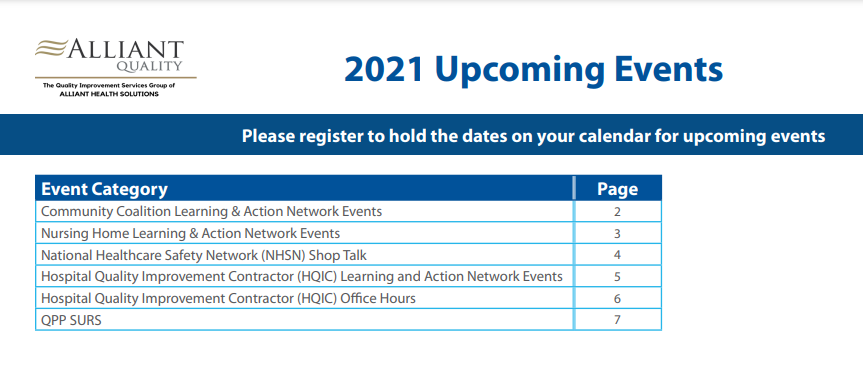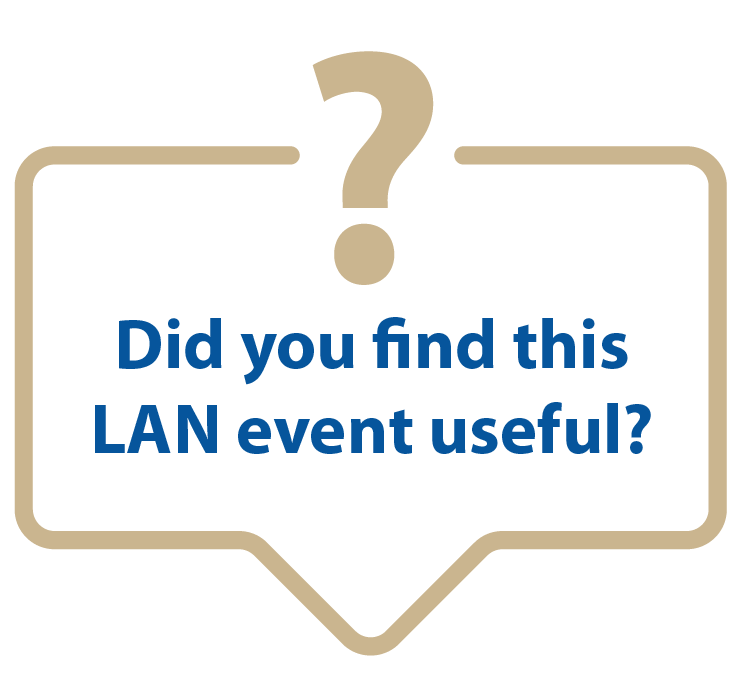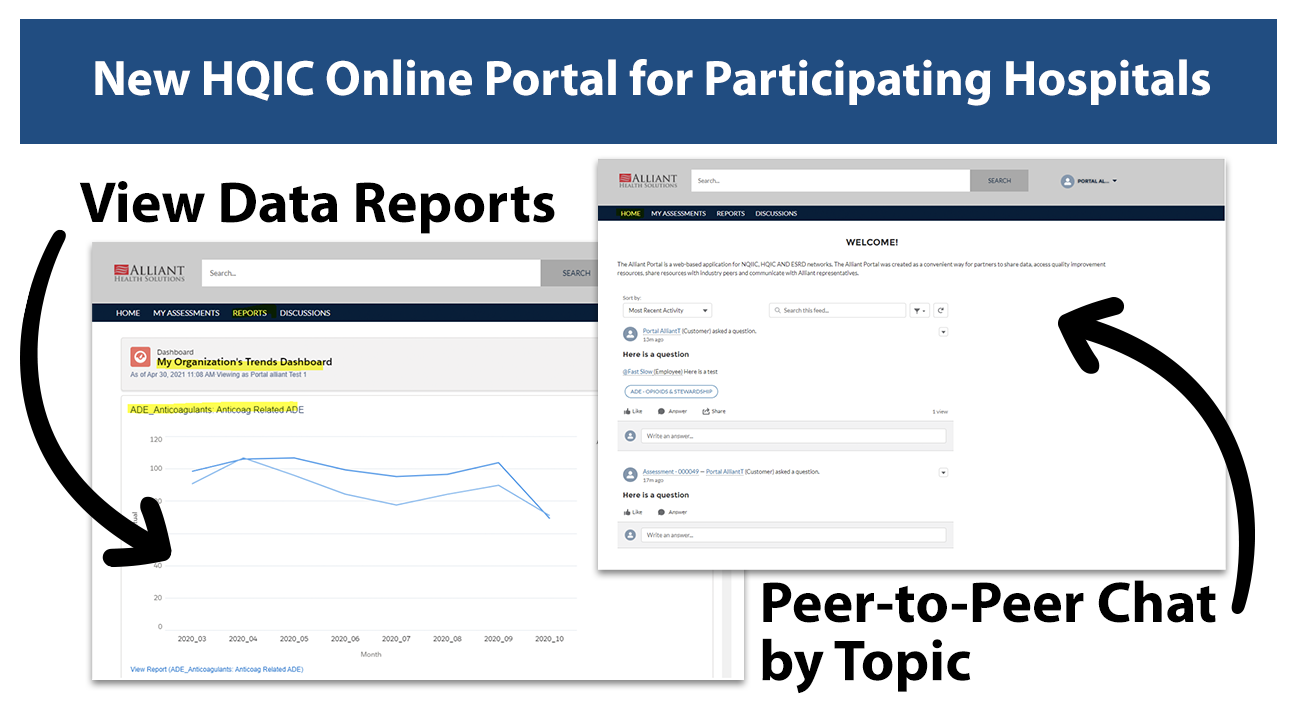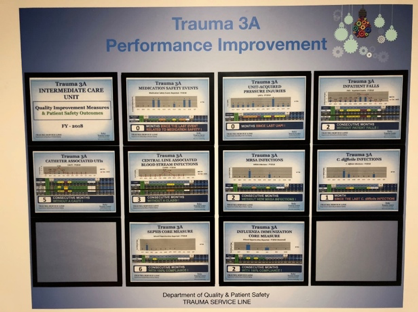|
|
|
|
This monthly newsletter highlights the latest insights, resources, and evidence-based best practices.
Our hope is that this newsletter makes it easy for you to stay on top of trends and allows you to provide the best possible care for those you work with and serve.
|
|
|

CMS Proposes to Enhance the Medical Workforce in Rural and Underserved Communities to Support COVID-19 Recovery and Beyond
The Centers for Medicare & Medicaid Services (CMS) issued a proposed rule (CMS-1752-P) for inpatient and long-term care hospitals that builds on the Biden Administration’s key priorities to close health care equity gaps and provide greater accessibility to care. Major provisions in the proposed rule would fund medical residency positions in hospitals in rural and underserved communities to address workforce shortages and require hospitals to report COVID-19 vaccination rates among their workers to contain the spread of the virus. Learn More
|
Upcoming Learning and Action Network (LAN) Events
HQIC LAN: Establishing a Robust Pain Management Initiative Within Your Hospital
Tuesday, July 27 at 2 p.m. ET (30 min.)
Two speakers from the Pain Assessment and Management Initiative (PAMI) team at the University of Florida College of Medicine – Jacksonville will discuss building a multidisciplinary pain management team, establishing buy-in from busy providers and producing patient education resources tailored to your hospitals’ needs.
Register Now | Download Event Flyer
 Important Update: There have been some changes to the LAN registration links. If you downloaded Alliant’s 2021 Upcoming Events PDF, please disregard it. A new PDF with the updated registration links has been added to the Virtual Education Events webpage
View All Upcoming Events Here Important Update: There have been some changes to the LAN registration links. If you downloaded Alliant’s 2021 Upcoming Events PDF, please disregard it. A new PDF with the updated registration links has been added to the Virtual Education Events webpage
View All Upcoming Events Here
Past Learning and Action Network (LAN) Events
HQIC Onboarding
Recorded on June 14, 2021
Alliant Health and collaborating HQIC partners welcomed our enrolled hospitals of the CMS Hospital Quality Improvement Contractor (HQIC) program. Objectives included:
- Discuss an overview of the HQIC program including core leadership team and goals
- Explain the data metrics used to measure performance improvement for the program and individual hospitals
- Describe educational Learning and Action Network (LAN) events, subject matter experts and collaborating partners providing customized coaching to hospitals
Watch Recording | View Slides
HQIC LAN: Monoclonal Antibody Therapy for High Risk COVID Patients
Recorded on June 22, 2021
Since their initial emergency authorization in November, monoclonal antibodies have been an important weapon in the fight against COVID-19. These products have proven to be effective at preventing hospitalization and death due to COVID-19 in some of the highest risk patients. This presentation will provide an overview of these products, the data behind their emergency authorization and the clinical considerations around their use.
Key Takeaways:
- Monoclonal antibodies are a powerful and important tool in our COVID-19 toolbox that when used early in patients with mild to moderate COVID-19 can significantly reduce hospitalization/death in high-risk patients.
- There are currently three monoclonal antibody products authorized for emergency use in the United States. Two of which are currently available at no cost to the provider.
- Leverage resources provided to consider providing monoclonal antibody therapy or at least refer patients to existing infusion centers.

If Yes, Click Below.
Click here if you attended the April LAN event and were able to "use tomorrow" what you heard during the webinar.
View All Previous LAN Event Recordings
Upcoming Partner Events
Alliant HQIC hospitals are invited to attend educational events provided by other HQICs. Upon login, you will have to create an account.
Eastern US Quality Improvement Collaborative: Recovery Strategy for CLABSI Rates After COVID-19 Pandemic’s Impact
Wednesday, July 14 at 1 p.m.
Hospital CLABSI rates were, for the most part, at all-time lows when the COVID-19 pandemic hit. They rose significantly during the first COVID-19 surge and, unlike some of the other hospital-acquired infections, have not recovered. We clearly need to take action to address this. Please look at your CLABSI data to assess your current status. The webinar will cover:
- Probable root causes for the increased rates,
- Potential intervention to mitigate those causes now and in other surges, and
- Back-to-basic CLABSI prevention.
Register Now
View All EQIC events
|
New! HQIC Online Portal for Accessing Data and Peer-to-Peer Learning 
Alliant Health and our HQIC partners have launched a new Alliant Quality portal for our participating hospitals. This portal allows you to view your assessments and measurement data, and chat with other HQIC-enrolled hospitals to share best practices, barriers, and solutions. Register today to quickly access your data when you need it and network with your peers!
Download Portal Instructions to Get Started | Access Portal
Behavioral Health/Opioid Stewardship
Evidence-Based Pain Management Alternatives for Older Populations
The TMF Health Quality Institute created an educational module to enhance the knowledge and understanding of participating physicians and health care providers on opioids and opioid alternatives in the Medicare and older patient population.
Learning objectives
- Podcast 1 – Discuss opioid and non-medication treatments for pain in the older population
- Podcast 2 – Discuss short-term and long-term opioid use, pain measurements and side effects of opioid use
- Podcast 3 – Discuss risk management evaluation tools for pain management
- Podcast 4 – Discuss side effects of opioid use and substance use disorder
Listen to the Podcasts
Trends in Opioid- and Stimulant-Related Hospital Inpatient Stays
From 2012 to 2018, more hospital stays were related to opioids only (without stimulants) than for stimulants only (without opioids). However, from 2016 to 2018, the population rate of stimulant-only related hospital stays increased 22%, while opioid-only related stays remained relatively stable with an 8% decrease, according to the Agency for Healthcare Research and Quality (AHRQ) Healthcare Cost and Utilization Project Statistical Brief #271. Learn More
Save a Life: Prescribe Naloxone With Every Opioid
On average, more than 90 Americans die from an opioid overdose every day. To prevent deaths, prescribing Naloxone should be a universal practice with every opioid prescription. It’s a safe, quick-acting medication that restores breathing. In addition, beneficiaries, medical staff, families and care partners can be easily trained to administer Naloxone to save a life. Click here to find harm reduction resources near you.
Stem the Tide: American Hospital Association Introduces New Guide to Enhance Opioid Stewardship
The American Hospital Association has developed an Opioid Stewardship Measurement Implementation Guide as a companion piece to the Stem the Tide: Addressing the Opioid Epidemic toolkit. The new measurement implementation guide was developed through rigorous research and collaboration with leading experts. It provides an effective and actionable list of measures to implement best practices using data, address potential gaps in patient care and identify opportunities for continued improvements in opioid stewardship. Download the Guide
Strategies to Prevent Opioid Misuse in Hospitals
Opioids provide effective dose-dependent pain relief with minimal toxic effects and can be administered via various delivery systems. However, there is increasing recognition that errors in prescribing, administering and monitoring patients on opioid therapy can lead to serious side effects and adverse events. The widespread use of opioids in hospitals and discharging patients on opioids can lead to long-term use, misuse, and potential dependence and addiction. Read More
Patient Safety
Candida auris
Candida auris: Surveillance, Prevention and Control
Candida auris (C. auris) is a fungus that causes serious infections and spreads in healthcare facilities. Infection preventionists, healthcare personnel and laboratory staff can all help prevent it from spreading. Review the CDC Factsheet to learn how to adequately prepare for, identify and control the spread of C. auris. Read More
Safe Patient Handovers
Shift Handovers and Improved Patient Outcomes
A safe patient handover from one nursing shift to the next requires complete and accurate communication between nurses. A review featured on the Patient Safety Network website identified which nursing handover interventions improved patient outcomes (i.e., fewer patient falls, pressure injuries and medication administration errors). Interventions differed across the included studies, but results indicated that moving the handover to the bedside and using a structured approach, such as Situation, Background, Assessment, Recommendation (SBAR), improved patient outcomes. Read the Article
NHSN Reporting
Join Alliant Quality’s Hospital Group in the NHSN
The CDC’s National Healthcare Safety Network (NHSN) is the nation’s most widely used healthcare-associated infection tracking system. NHSN provides facilities, states, regions and the country with data to identify problem areas, measure the progress of prevention efforts, and ultimately eliminate healthcare-associated infections. Join Alliant Quality’s hospital group in NHSN and accept the updated confer rights template so we can best assist you in your infection prevention and control efforts. If your hospital is not currently reporting data to NHSN or you have questions regarding infection surveillance and reporting, reach out to Amy Ward, Alliant Quality Infection Prevention Specialist, at amy.ward@allianthealth.org. Read More
Antibiotic Stewardship
Short-Duration Electronic Health Record Option Buttons To Reduce Prolonged Length of Antibiotic Therapy in Outpatients
Prolonged antibiotic therapy may be associated with increased adverse events and antibiotic resistance. A simple intervention deployed in the electronic health record (EHR) can safely reduce the duration of antibiotic therapy. Learn More
Pressure Ulcers
Preventing Pressure Ulcers in Hospital
Each year, more than 2.5 million people in the United States develop pressure ulcers. These skin lesions bring pain, associated risk for serious infection and increased health care utilization. The aim of this toolkit is to assist hospital staff in implementing effective pressure ulcer prevention practices through an interdisciplinary approach to care. Learn More
Sepsis
Learn How Sepsis Might Affect You or a Loved One
Sepsis is related to a number of other diseases and conditions, many of which are risk factors for developing sepsis. Sepsis can also affect different populations in a variety of ways. Visit Sepsis.org to view a list of “Sepsis and…” topics or use the search bar to find more information on how sepsis might affect you or a loved one.
Health Equity
NYSPEP On-Demand Training: Race, Ethnicity and Language (REaL) Data Collection: How and Why We Ask
This program is for frontline staff and focuses on strategies aimed at collecting race, ethnicity, and language (REaL) data to ensure that quality and equitable health care is delivered to all patients. Within the e-learning program, the participant will be guided to learning specific data collection strategies and best practices to improve and increase patient self-identification of REaL information to help patients, families, and/or their caregivers understand why we collect REaL data. This skill-based training is tailored to frontline staff responsible for registering patients in addition to other providers who may collect patient demographic data. Register Now
Readmissions/Care Transitions
Implementing the Teach-Back Technique
Teach-back is a technique that health care providers can use to ensure patients and their families clearly understand the medical information communicated to them. The AHRQ’s Teach-Back Implementation Quick Start Guide provides clinicians and practice staff with five simple steps for implementing teach-back in the office. View Materials
AHRQ Toolkit Offers Strategies for Reducing Readmissions
Hearing from your patients about why they think they were readmitted provides valuable information. By talking with your patients, you will learn about communication and their understanding of the information provided, care coordination and other barriers. The AHRQ toolkit, ASPIRE, accompanies Designing and Delivering Whole-Person Transitional Care: The Hospital Guide to Reducing Medicaid Readmissions and features a collection of evidence-based strategies to reduce readmissions, such as the readmission interview tool. Analyzing the responses from the interview tool will assist in your discharge process improvement work. ASPIRE Toolkit | Readmission Interview Tool | Watch the Video
|
COVID-19 Care
Join NCRN’s Regional Community Coalition
Alliant Health Solutions has partnered with Morehouse School of Medicine on a national initiative to mitigate the impact of COVID-19 on priority populations, in rural areas, migrant workers, refugees and immigrants. This collaboration consists of organizations and individuals from all over the country that are working together to inform community-driven responses, recovery, and resiliency strategies for addressing this pandemic. The goal of this initiative is to connect individuals, families, community organizations and clinical providers to timely and relevant COVID-19 information and resources. Click Here To View a Short Video on How To Register and Create an Account in the NCRN Platform
Applications for Regional Community Coalition (RCC) Micro Grants are Now Available
The NCRN Community Engagement Core invites nonprofit community-based organizations (CBOs) to submit proposals to apply for the second round of funding designed to assist communities in gaining increased access to COVID-19 vaccines. The NCRN will fund $5,000 grants for up to 25 awardees among the 10 United States regions. Click Here To Download the Application Packet
COVID-19 Vaccine Resources
Alliant Quality COVID-19 Vaccine Resources
Curated resources and best practices to support long-term care facilities, clinics, providers, and staff as they navigate vaccine distribution. Alliant Quality COVID-19 Vaccine Resources
COVID-19 Updates for Vaccinated/Unvaccinated
The COVID-19 vaccines are changing how we protect ourselves and others. Guidance has been updated here for those who are fully vaccinated, unvaccinated and some other situations. Find the current update, as well as links to the COVID-19 tracking map, here: COVID-19 Updates
CDC COVID-19 Vaccine Webinar Series
The CDC is offering a series of 15-20 minute interactive, web-based trainings to address issues related to COVID-19 vaccination. These trainings are intended for immunization providers, such as physicians, nurses, nurse practitioners, pharmacists, physician assistants, medical students, state and local immunization programs and others authorized to administer vaccines. Topics range from routine clinical and vaccine safety information to guidance for on-site clinic vaccination activities and patient education. Continuing education credits are available. Learn More
|
Best Practices
Data Transparency to Foster a Culture of Patient Safety
At Jackson Health System in South Florida, a key element of fostering a culture of patient safety is data transparency. Quality improvement measures and patient safety outcomes are displayed on performance improvement boards located on floors and units throughout the hospitals and highlight the number of consecutive months of “0” harm events. Isis Zambrana, Vice President and Chief Quality Officer, noted that they have a lot of processes in place and are diligently working to continue improving outcomes. She added, “What gets measured, gets managed.” Learn More
Hospital Heroes
Emory Physicians, Researchers, Allied Health Professionals Honored in 2021 Health Care Heroes Award
The Atlanta Business Chronicle selected Emory University and Emory Healthcare (Ga.) physicians, faculty and staff as winners and finalists of its 2021 Health Care Heroes awards. Many of Emory’s winners and finalists this year played major roles during the COVID-19 pandemic. Read About Their Work
AdventHealth Gordon Awarded HFAP Accreditation
AdventHealth Gordon (Ga.) was awarded accreditation by the Healthcare Facilities Accreditation Program (HFAP), the nation’s original, independent accreditation program recognized by the Centers for Medicare and Medicaid Services (CMS). Accreditation confirms that AdventHealth Gordon is providing high-quality care as determined by an independent, external evaluation process. Read More
Access to Critical Health Care
Atlas Health, a leader in medical financial aid for vulnerable populations, announced that Wayne Memorial Hospital (Ga.) is on track to match its patients with more than $1 million in financial medical aid this year, a year-over-year increase of more than 500%. To date, the partnership has enabled the rural Georgia hospital to reduce the financial burden of critical and lifesaving care for 45 patients and deliver on its mission of providing high-quality care for all patients. Read More
|
|
|
Connect with us!
    Click here if you'd like to share your corporate profiles with us and we'll connect with you!
Click here if you'd like to share your corporate profiles with us and we'll connect with you!
|
| |
Hospital Quality Improvement Project Collaborators


|
For more information about Alliant Quality, visit the website: www.alliantquality.org
For questions or information about free technical assistance, please contact:
Share this email with a friend or colleague:  
|
|
|
|
|